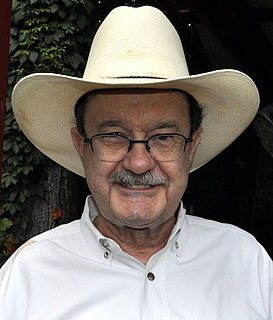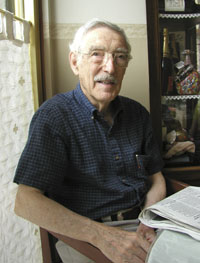A Quote by Jim Hightower
Organic agriculture is more about fairness and respect than it is about parts-per-billion of pesticide residues
Related Quotes
There are certain products that it's worth buying organic just because the alternatives have so much pesticide. There's a list of the dirty dozen that you can get off the Web. Strawberries, potatoes. A handful of crops that have very high pesticide residues if you don't buy organic. If you eat that a lot, that's a good place to invest.
Even if you could use all the organic material that you have--the animal manures, the human waste, the plant residues--and get them back on the soil, you couldn't feed more than 4 billion people. In addition, if all agriculture were organic, you would have to increase cropland area dramatically, spreading out into marginal areas and cutting down millions of acres of forests.
The effort to eliminate synthetic pesticides because of unsubstantiated fears about residues in food will make fruits and vegetables more expensive, decrease consumption, and thus increase cancer rates. The levels of synthetic pesticide residues are trivial in comparison to natural chemicals, and thus their potential for cancer causation is extremely low. [Ames believes that "to eat your veggies" is the best way to prevent cancer.]
Anything greater than 350 of parts of carbon dioxide per million is more than the planet can safely deal with. It is what's overwhelming our climate system. Because we've been going up about three parts per million per year. And eventually, we will always be above 410, and then above 420, and above 430. We just keep pouring more carbon into the atmosphere.
The UN special envoy on food called it a 'crime against humanity' to funnel 100 million tons of grain and corn to ethanol when almost a billion people are starving. So what kind of crime is animal agriculture, which uses 756 million tons of grain and corn per year, much more than enough to adequately feed the 1.4 billion human who are living in dire poverty?
The collective shortfall of the 3.08 billion people (47 percent of world population) who, in 2005, lived below $2.50 per day was $507 billion per annum, which indeed comes to about two-thirds of the present US military budget. This gives us a rough sense of how much the eradication of poverty would cost.
Here in the United States we're now consuming about three gallons of petroleum per person per day. That's twenty pounds of oil per person per day. We only consume about four pounds of oxygen per person per day. We're consuming five times more oil each day, here in the United States than we are oxygen. We've become the oil tribe.
The pursuit of market-rate pay equity is about far more than respect. It's a matter of fairness, considering the increased workload that New York's Finest has assumed to not only make us the safest big city in America but to also take a more proactive role in strengthening community-police relations.
Almost all the world is natural chemicals, so it really makes you re-think everything. A cup of coffee is filled with chemicals. They've identified a thousand chemicals in a cup of coffee. But we only found 22 that have been tested in animal cancer tests out of this thousand. And of those, 17 are carcinogens. There are ten milligrams of known carcinogens in a cup of coffee and thats more carcinogens than youre likely to get from pesticide residues for a year!

































